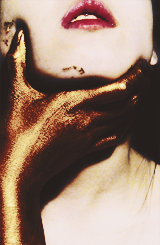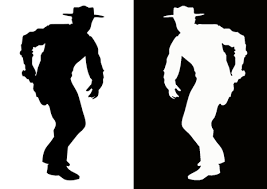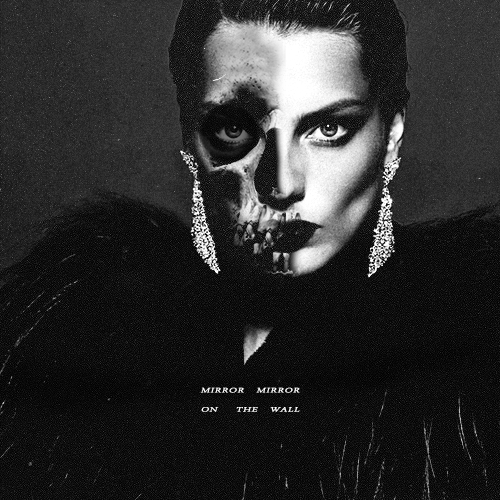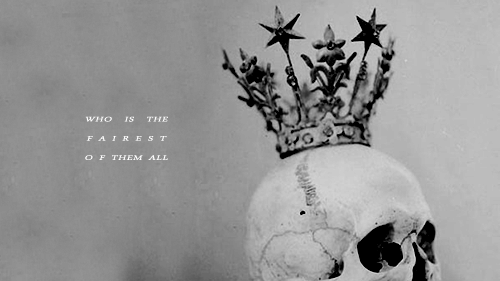Katherine Frances's Blog, page 377
April 7, 2015
sansaspark:FAIRYTALE MEME: 1/7 Villains↳The Evil Queen from Snow...
"You must be ready to burn yourself in your own flame: how could you become new, if you had not first..."
- Friedrich Nietzsche, Thus Spoke Zarathustra (via guidedbyvices)
I have a question :) In my writing courses back in college everyone told me that my characters needed reasons to be as weird as I wrote them rather than "just because" or "that's how they are" and "there are real people that are like this" which are my rea
I’m going to answer this question in two parts:
1.) Nobody’s personality develops in a vacuum. While many of our character traits are inherent to us (introversion vs. extroversion, anxious vs. laidback), our more extreme/complex character traits are the product of numerous psychological, social, and environmental factors.
When developing characters, you do have to take that into account. “Weird” characters typically A.) Don’t understand societal norms (Which is why you get so many “weird” characters who arguably fall in the Autistic spectrum - not saying I condone this, btw, just saying that this is something that happens), or B.) Have actively chosen to not give a fuck about societal norms. (Luna Lovegood would be a good example of the former; Willy Wonka (movie version) would be a good example of the latter.)
It’s very clear that Luna Lovegood doesn’t think the way that most people think. She has a unique perspective on the world around her, and this is obvious in everything she does. This unique perspective is likely the product of her upbringing - her dad is just as “unique” in his vision as she is, and her mother died as a result of magical experimentation. (Which Luna witnessed - let that sink in.)
Willy Wonka is an odd person, but by the end of the film you see that his oddity is his way of rejecting society. He hates people. He distrusts them to the point that he designed a strange and cruel experiment to test/torture children to determine their worthiness to inherit his chocolate factory. It may seem like reading into things, but it does help make sense of his character and makes him a bit more than just some goofball on a sugar high.
The thing is, in real life you don’t see the reasons people act strange, but that doesn’t mean there isn’t a reason. It just means that you aren’t privy to that information. Which brings me to part 2 of this answer:
2.) Truth is stranger than fiction. This term gets thrown around a lot, but what it really boils down to is this - In real life, random things just happen, randomly. People get in their car to drive home and get killed in random accidents. People do weird things on a whim, just for fun.
But life is life, and stories are stories. And when you’re telling a story, everything needs to work together in some form or fashion to complete the narrative. There has to be a point (unless you’re writing very specific forms of nihilstic, existentialist, postmodern, etc. literary fiction, but I digress.)
So, getting back to what you said - maybe your character dresses like the devil in July. But why make it random when you can make it something more?
“What are you wearing?” said Anastasia. “Are you nuts?”
“You’re wearing a costume. Why can’t I wear one too?” said Katie as she adjusted her horns.
“This is my uniform. For my job. I’m not traipsing around like Lucifer on acid.”
“It’s still a costume. You’re pretending to be something you’re not. And if the world is telling me I have to wear a costume to get by, at least I’m going to choose the costume I wear. Now, if you’ll excuse me I have mischief to spread and innocents to corrupt.”
"I have accepted fear as part of life – specifically the fear of change… I have gone ahead despite..."
- Erica Jong
(via observando)
When someone starts talking about the book you are right in the middle of...
indxstress: Blood follow’d, but immortal; ichor pure, Such...






Blood follow’d, but immortal; ichor pure,
Such as the blest inhabitants of heav’n
May bleed, nectareous; for the Gods eat not
Ichor is the ethereal golden fluid that is the blood of the gods and/or immortals, said to retain the qualities of the immortal’s food and drink, ambrosia or nectar. Golden in color and lethally toxic to mortals. Great demigods and heroes occasionally attacked gods and released ichor.
On Writing Friendship in Fiction

I’ve noticed while reading that a lot of people, includingmyself, have difficulty writing realistic friendship in fiction. Here are somequick tips on how to make your fictional friendships more realistic. There willbe a lot of Harry Potter references in this, so get ready.
1.
Shared History:
Unless your characters just met, they have to have some kind of past with
each other. Sketch out a history for them. Inside jokes don’t just come out of
nowhere.2.
Best
Friends Are People Too: Sure, they’re not the main character, but never
forget that best friends have personalities and flaws too. That’s what made Harry Potter so awesome. Harry’s
friends, including Luna and Neville, had memorable personalities and character
flaws. Your best friend characters may not have a major role in the novel, but
you should at least figure out what makes them tick. Few things annoy me more
than best friends who only exist to make the main character look more popular.
(Hey there, Rebel Belle).3.
Friends
Have Other Lives: This kind of goes hand in hand with point #2. Friends
have lives outside of your main character, don’t forget that. That’s kind of
what I like about Cora Carmack (yes, I read everything)
. Say what you want about her, but the secondary characters in some of her
novels have lives outside of the protagonist.4.
Yes, they
have common interests but they are not the same person: It’s true that friendships are often based on
common interests. Harry and Ron both love Quidditch, have a certain disregard
for the rules, despise Malfoy, and occasionally slack off in class. However,
Ron has other interests outside of that. He loves Wizards Chess and teaches
Harry to play with him even though Harry doesn’t appear to like it as much as
Ron does. And think about Hermione. She
loves books and studying, and Ron and Harry don’t like that at all. So friends
don’t have to have EVERYTHING in common.5.
Sometimes
there are rough patches: Good friendships have rough patches. Sometimes one
character or person is annoyed by their friends for some reason or another.
Sometimes all of our flaws get the best of us. This is something that you can
make use of in your novel. Once again, look at how J.K. Rowling worked in rough
patches with the trio.6.
Sometimes
friendships just don’t work out: Sadly, some friendships run their course.
Snape and Lily Potter, anyone?If you take nothing from this post, just remember to make your
friends (and secondary characters) real people. Just because they don’t carry
the plot doesn’t mean that they deserve to blend into the background. A good
secondary character can make a story, and a beautiful friendship in fiction can
potentially spawn a lot of subplots.
"Better to write for yourself and have no public than to write for the public and have no self."
- Cyril Connolly (via nevermindtheb0ll0cks)
"can’t turn my body’s firewall off."
Bad Emotions Made Good

When writing a story you may find that the good guy has access to a limited range of emotions compared to the bad guy.
Basic emotions (happy, sad, angry, etc.) are easy enough to evoke, but more complex or darker feelings tend to be more difficult to justify.
For example, if the hero’s best friend wins the lottery, a good guy would react how? If he’s a decent human being, probably by being pleased for his friend.
If a friend of the villain—usually a not so wholesome individual—wins the lottery, then the response can be more varied. Pleased (because he plans to ‘share’ in the wealth), jealousy, resentment, maybe even plans to steal the money. These darker thoughts are often more interesting and offer more ideas for where to take a story.
While making your main character evil but still likeable is a very hard thing to achieve, that doesn’t mean you can’t give them (and the reader) the chance to experience the darker side of their personality.






